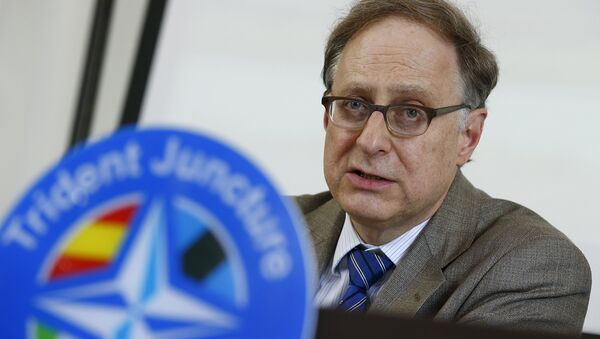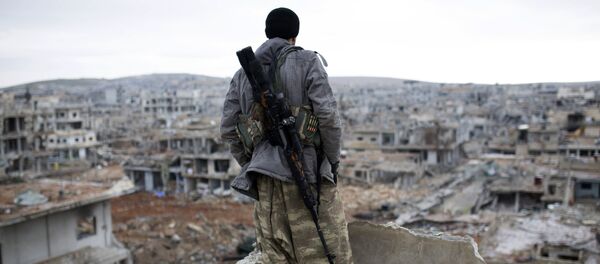"I think that it’s really essential that efforts to stop ISIL succeed in Iraq and Syria. We have to break the momentum, which is contributing to ISIL’s ability to recruit more fighters – including from our own countries – and counter their narrative," he said after delivering a keynote speech at the Centre for Higher Defence Studies (CESEDEN) in Madrid.
Vershbow said it was hard to imagine the situation with ISIL getting much worse, "but it could," he warned. NATO believes a worst-case scenario would be for ISIL to consolidate its position in Syria and Iraq, despite some progress made recently by the US-led international coalition there.
The NATO deputy chief emphasized that regional countries were part of the solution to the ISIL problem in the Middle East.
"Part of this answer has to be coming from the Middle East itself. It is important that there are many Arab countries that are part of the international coalition," he said.
Vershbow noted that, "Ultimately, the solution in Syria is a political one," adding that he was "not, frankly, optimistic about that."
A coalition of US, EU and Arab countries has been bombing ISIL positions in Syria and Iraq since 2014. Simultaneously, regional and world powers have been trying to cut the ground from under the ISIL insurgency by holding rounds of talks to end the Syrian crisis.
On Thursday and Friday, Vienna will host two-day international talks to find a peaceful solution to Syria’s four-and-a-half-year civil war. All key international players are due to attend, including foreign policy chiefs from the United States, Russia, Iran, Saudi Arabia, Turkey and the European Union.
NATO is not officially involved in the international operation against ISIL militants in the Middle East, although many of its member states are participating.



